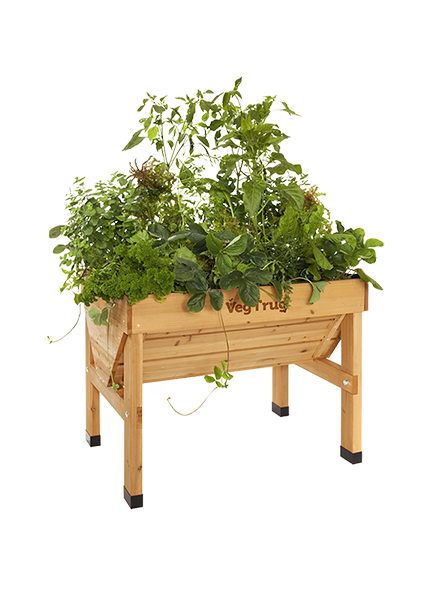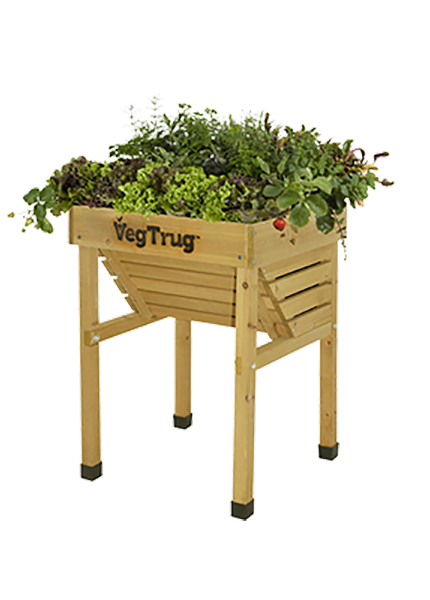Parsley is hugely versatile and comes in flat leaf or curly varieties. Curly parsley is darker, has a milder taste, and is traditionally found in the UK, but in reality flat leaf is the more commonly used in dishes around the world.
It’s super easy to grow and makes a great starter plant. What’s more, if you can get your kids to learn how to grow parsley and then try their own horticultural efforts, parsley is packed with vitamin C and iron.
Parsley is slow to germinate and can take six weeks, but once you learn how to grow parsley you can enjoy it throughout the growing season. You’ll just need to keep sowing it every few weeks, starting in the spring. If you’re putting your seeds straight into the ground, place them in rows 1cm deep and at least 15cm apart. With a VegTrug, sow your seeds thinly and cover over with a little compost.
Parsley likes a sunny but partially shaded area.
When your new parsley plants are strong enough, thin them out so there’s a 2cm gap between each one.
You can even plant Parsley at the end of the season and bring the plants indoors during the winter months.
Parsley needs plenty of water and it’s especially important to keep it watered in hot months. Cut back any yellowing lower leaves and remove flowers to increase your harvesting time. Parsley will flower in its second year of growth unless you remove all the flowers. Cutting the leaves will also encourage more to grow.
The same process applies if you’re thinking about how to grow parsley in a VegTrug, but you should also feed the plants with a fertiliser every few weeks.
Young parsley plants can come under attack from slugs and snails. There are various methods for discouraging snails and slugs from eggshells to sawdust and horticultural soap. But because parsley is a member of the same family as carrots, it can also suffer from carrot fly.
Carrot fly larvae hatch and tunnel into the roots of the plant, but sowing seeds in late spring, after the larvae hatch, can help. If you harvest parsley before mid-August you should avoid the second wave of larvae too. Planting parsley near strong smelling onions and garlic can help keep the fly off the scent.
Keep parsley on the menu throughout the season by sowing regularly. That way you can pick your parsley and have it fresh as you need it. Parsley’s at its best that way too. Cut the stem at its base to encourage new growth.
If you want to store your parsley, dry it and keep it in an air-tight jar, in a cool place, or chop it and freeze it, ready to add to your salads or sauces.
How to grow parsley is part of the VegTrug Grower’s Guide.

